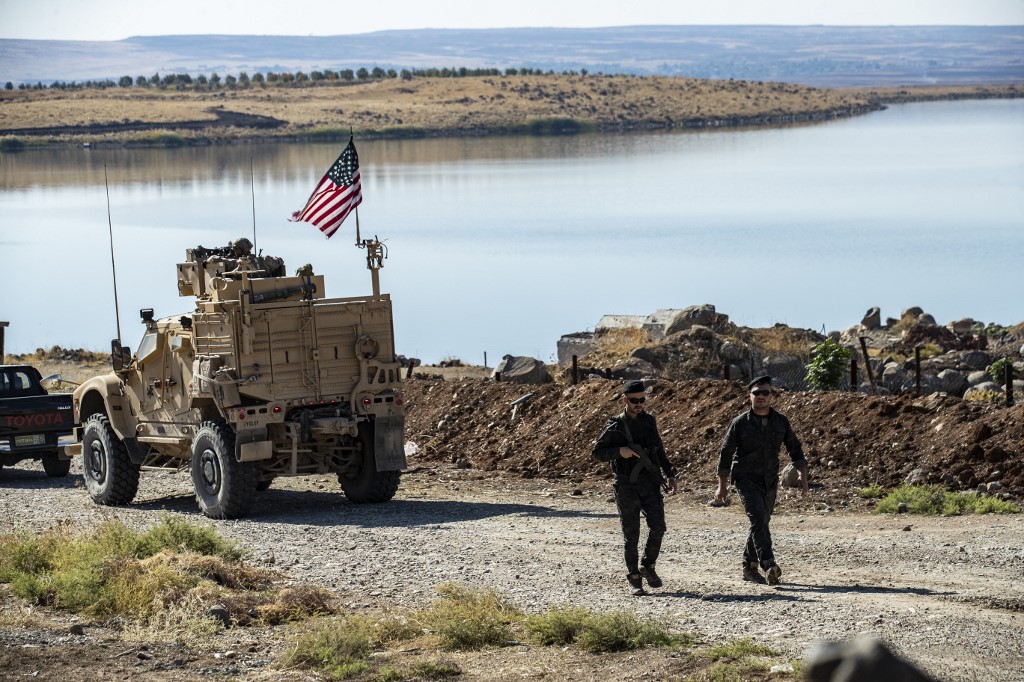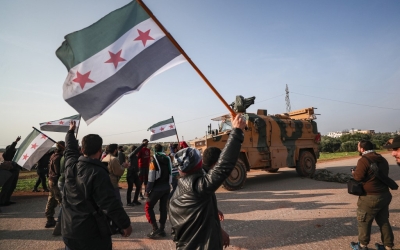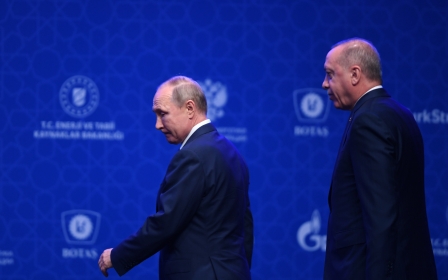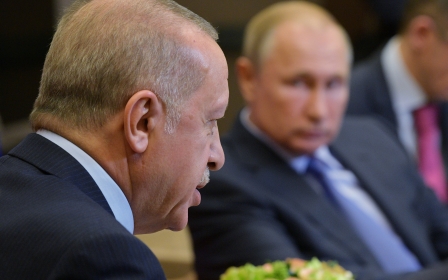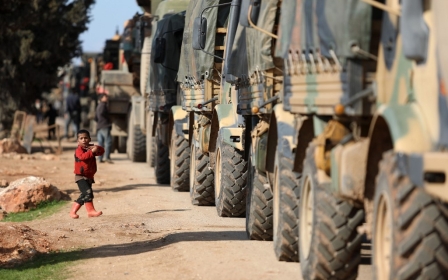How Ankara's intervention in Syria could revive US-Turkey relations

Turkey’s military intervention in Syria recently culminated in a ceasefire agreement between Ankara and Moscow, Syrian President Bashar al-Assad’s principal backer, giving the population of Idlib much-needed respite.
Just four years since Assad vowed to retake every inch of territory lost to the rebels, the regime was very close to recapturing Idlib and subjugating its population of approximately three million people to brutal repression.
The fall of Idlib would have worsened the devastating refugee crisis in neighbouring Turkey, where the government has hosted millions of Syrians who have fled the nine-year conflict, but lacks the infrastructure to absorb an additional wave of Syrians.
Preventing the fall of Idlib
Time will tell whether the latest agreement between Turkey and Russia will last. The deal has temporarily halted the conflict and prevented the fall of Idlib to the regime, Turkey’s foremost objective.
The ceasefire agreement creates a buffer zone along the strategic M4 highway that runs through Idlib province and will be policed by joint Turkish-Russian patrols, but it does not provide for the withdrawal of Syrian troops from newly captured territory.
Turkey’s military intervention has revived Turkey’s credibility and capacity as a major belligerent in a conflict landscape where the regime, Russia and Iran were on their way to monopolising and consolidating power in every swath of territory.
Turkey and the US are only as strong as their alliance in a conflict landscape, where they are still inferior actors on the ground
That has been complicated by the intervention, which now presents an opportunity for Turkey and the US to use the resulting momentum to find a way to build on the intervention by developing a long-term strategy that includes a coercive (and deterrent) element, in much the same way that Russia and Iran have done alongside the Assad regime.
Both Ankara and Washington have mutually beneficial interests in Syria: preventing the regime’s resurgence and restoration of control over the entire country; keeping Iran’s influence at bay; and delaying the prospects of a postwar settlement that allows for the flow of external funding for Syria’s post-conflict reconstruction, which could result in the regime’s reintegration into the international community.
But Turkey and the US are only as strong as their alliance in a conflict landscape, where they are still inferior actors on the ground and still reluctant to match the manpower and resources invested by their rivals.
Diverging interests
The Achilles heel that has defined and impaired the US-Turkey relationship in Syria is Ankara’s conflict with the Kurdistan Workers’ Party (PKK), which has fought the Turkish state for decades, and the US relationship with its Syrian sister organisation, the Peoples’ Protection Units (YPG), which has fought hand-in-glove with the US to defeat the Islamic State.
Washington and Ankara have increasingly diverged as a result of the US dependency on the YPG and Washington’s failure to assuage Turkey’s national security concerns. The relationship became further strained after Turkey purchased S-400 missiles from Russia (which may yet be reversed in the coming months).
The two countries’ commitment to preventing a humanitarian crisis in Idlib and their shared interests in Syria and the region can provide the impetus for a long-term, strategic dialogue aimed at finding a sustainable framework for managing their differences in the immediate future.
This could include efforts to establish (and revive pre-existing) pathways for the political and governing structures in non-regime held areas that include the YPG in a way that is amenable to Turkey and does not disregard the sacrifices made by the YPG, which has lost tens of thousands of fighters in the war against IS.
This will be admittedly difficult and beholden to an array of domestic and external spoilers in a congested and highly volatile conflict landscape. But for now, both the US and Turkey must realise that a detente could allow for a constructive coexistence, especially between Turkey and the YPG.
Collective response
This could ultimately enable a collective response to the crisis in Idlib and the broader conflict. In the absence of such a framework, Turkey and the US will continue to suffer the constraints that have equipped their rivals with a competitive edge - one with far-reaching humanitarian and security implications for both countries.
At the least, Turkey’s intervention should force a re-evaluation of the policy tools that Ankara and Washington can deploy in Syria. Russia and Iran, along with the regime, should no longer be allowed to exploit a self-inflicted paralysis on the part of western decision-makers, which has resulted from the misplaced argument that interventions in Syria necessarily have to trigger a war with Russia.
Moscow can be negotiated with and pressured if military force is leveraged, as Turkey’s intervention showed. This should serve as the basis for how the West can look to leverage its considerable military capabilities in a conflict that may yet present a series of unexpected opportunities for the West to achieve its objectives, in concert with traditional allies such as Turkey.
The views expressed in this article belong to the author and do not necessarily reflect the editorial policy of Middle East Eye.
Middle East Eye propose une couverture et une analyse indépendantes et incomparables du Moyen-Orient, de l’Afrique du Nord et d’autres régions du monde. Pour en savoir plus sur la reprise de ce contenu et les frais qui s’appliquent, veuillez remplir ce formulaire [en anglais]. Pour en savoir plus sur MEE, cliquez ici [en anglais].



